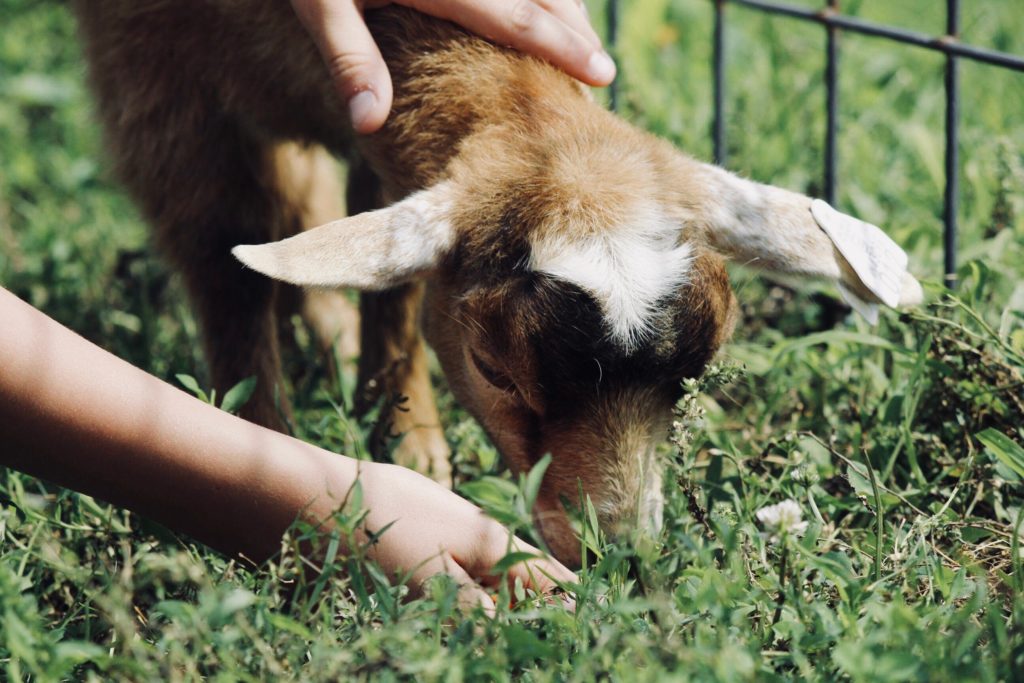All fields are required
Posted in E. coli,Outbreaks & Recalls on October 30, 2018

As a child going to a petting zoo was so much fun. We never really realized that there were serious dangers that could be associated with them. A fond childhood memory was going to a miniature horse farm that had shows where the horses dressed up and a part of this whole performance was that kids got selected from the audience for certain parts of the show. You could be really hands on with the animals in both the shows and at the small petting zoo afterwards. A total tourist trap in a small local town, but it was so much fun.There were literally gum ball machines filled with animal food and you could hand feed the farm animals and I recall them licking us and everything. We are talking about the early 1990’s, and I don’t ever recall sanitization being huge and this was prior to the time that everyone carried little bottles of hand sanitizer.
Getting illnesses from petting zoos is more common than we were ever aware. The CDC reports that each year from 2010-2015 approximately 100 outbreaks of illnesses were reported as a result of petting zoos, fairs and educational farms.Some of the most common harmful germs people get from animals at exhibits are E. coli O157:H7, Cryptosporodium, and Salmonella infections, but there are also many other types of germs that can spread between animals and people.
Much like preventing many illnesses hand washing is key to staying well in many situations including petting zoos. People often assume that if an animal looks clean that they are safe from illness, but this is simply a myth. Another myth is that a clean “habitat” for animals is a germ-free zone. Some people get sick from never touching an animal because of contaminated living environments.
Wash Your Hands Often
Eat and Drink Safely
Keep Children Safe Around Animals
There are important things to know if you manage or operate a petting zoo or educational exhibit as well. We live in an area where every summer there are lots of county and state fair events where people are hands on with a lot of animals and often a little information is great for guests.
Education/Information
The most common symptoms are diarrhea and abdominal pain. Other symptoms may include vomiting, fever, cramps, and bloody diarrhea. People with mild symptoms usually recover without treatment. However, these illnesses can lead to hospitalizations and severe complications also can occur.
Times have certainly changed from my adventures with the miniature horses and the petting zoo. We know more now than ever ways to protect ourselves from illnesses and by practicing these proper techniques we can prevent a lot of illnesses. The age of technology has helped us to learn now more than ever things that we need to know to stay happy and healthy as a family.
While you are out and about enjoying time with your family and you happen upon a petting zoo or exhibit of animals please be sure to wash your hands properly after handling them or even being around their living quarters. The illnesses that you can contract from being around animals are often hard to combat for young children, the elderly or those with compromised immune systems so being safe is the best bet when heading out.
If you believe you have developed an E coli infection from visiting a petting zoo, pumpkin patch, a farm, or a corn maze, we want you to know that an E coli Lawyer at the Lange Law Firm, PLLC is currently investigating this matter and offering free legal consultations. Our lawyer, Jory Lange became a lawyer to help make our communities and families safer.
If you or a loved one have become ill with E coli, you can call (833) 330-3663 for a free legal consultation or complete the form here.
By: Samantha Cooper, Contributing Writer (Non-Lawyer)